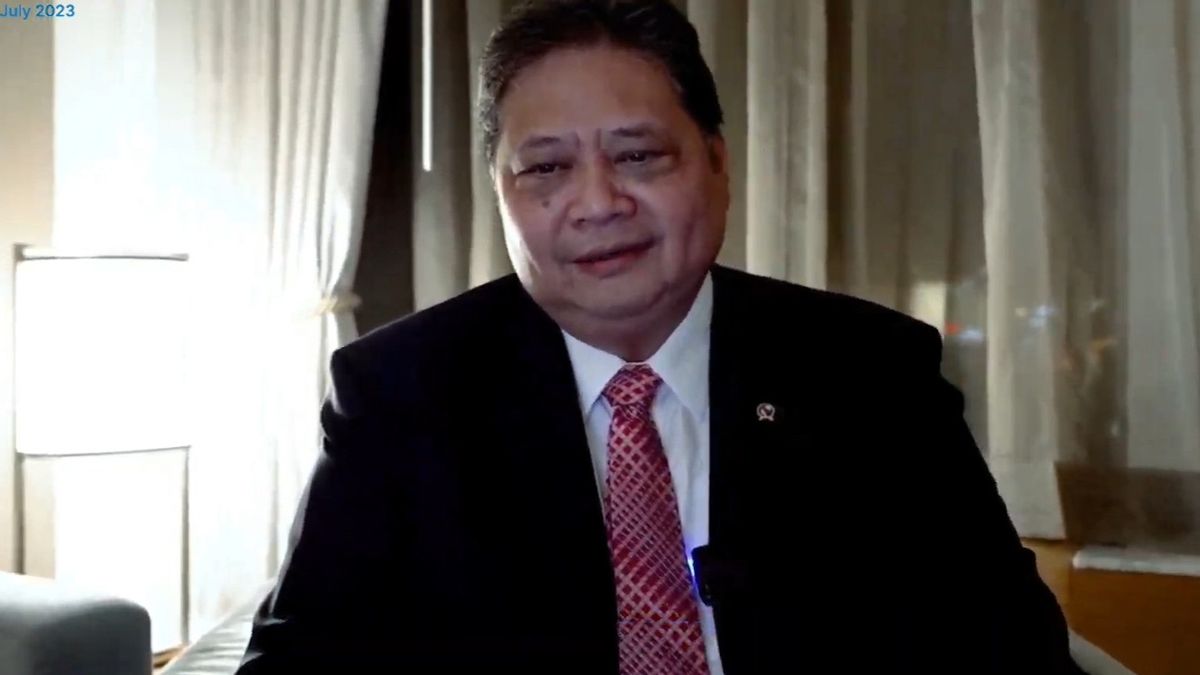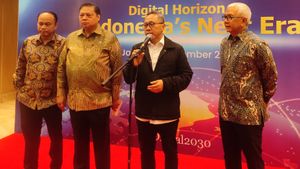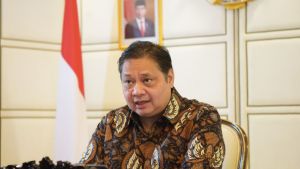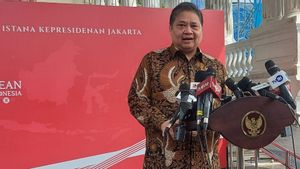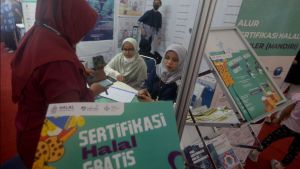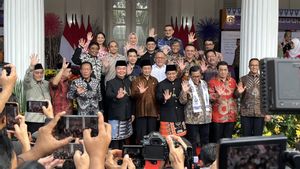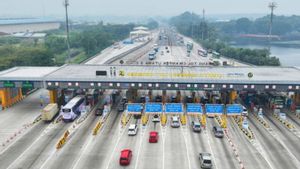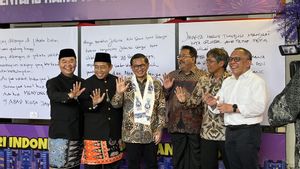JAKARTA - The government officially launched the National Strategy for Digital Economy Development in Indonesia 2030 on Wednesday, December 6, 2023. The book will serve as a guideline for the Ministry of Agriculture/Institutions and other stakeholders in implementing digital economic development and becoming a reference in determining Indonesia's position in the international world.
The White Book of the National Digital Economy Development Strategy, which is the national digital transformation agenda. This is in line with the Digital Economy Framework Agreement (DEFA) which is encouraged by Indonesia to become the only world trade agreement ecosystem in the digital sector. This book is a quick win and is divided into 3 phases," said Coordinating Minister for the Economy Airlangga Hartarto at the launch of the White Book, Wednesday, December 6.
Digital economy development until 2045 is prepared through 3 phases, namely the prepare phase which begins with improving the basic digital foundation to ensure that people are ready to transform,
Furthermore, the transformation phase is an effort to accelerate transformation in order to create intelligent people and businesses, as well as the lead phase by starting to set standards in innovation technology in the future.
Furthermore, Airlangga conveyed that to encourage Indonesia to the Lead stage in 2045 there will be a number of target aspirations that have been set, including increasing Indonesia's digital competitiveness.
Meanwhile, Indonesia's digital competitiveness, which was originally ranked 51th in 2022, is ranked 20th in 2045 and the contribution of the digital economy which must reach 20 percent of GDP.
Airlangga conveyed that the book also contains a strategy in the form of 6 main pillars of digital economy development. First, in the field of intervention infrastructure, it will target the expansion of internet penetration coverage, improving the quality of digital infrastructure, and increasing the computing edge.
Until now, the Government itself has built a number of digital infrastructures such as the Fiber Optic Palapa Ring Network that connects 57 districts/cities, additional BTS, to the use of the Satria Multifunction Satellite for 3T locations.
Then the second pillar in the field of human resources, intervention is aimed at targeting formal education, labor empowerment, and life long learning to ensure that each individual has skills in the digital era. Indonesia is predicted to need digital talents of up to 9 million in the next 15 years or 600 thousand each year.
"Currently, the Government continues to encourage the improvement of people's digital skills through Pre-Employment, Digital Talent Scholarship, to collaboration with private parties such as Apple, Microsoft, and Amazon," he explained.
The third pillar, namely in the fields of Research, Innovation and Development (R&D) will increase commitment in research and development, as well as encourage an innovation culture. The government itself has now also provided support in the form of Super Tax Deduction of up to 300 percent for activities
Fourth, realizing a productive, advanced, and higher-value business ecosystem through digitizing priority economic sectors such as manufacturing, trade, and agriculture.
SEE ALSO:
Furthermore, the fifth pillar, together with relevant authorities, will open the door to financial inclusion with a target level of financial inclusion reaching 90 percent by 2024, as well as the last pillar in the form of support for regulatory ecosystems and policies that are healthy, fair, oriented towards consumer protection and national security.
In line with Airlangga, Deputy for Coordination of the Digital Economy, Employment, and MSMEs of the Coordinating Ministry for the Economy Rudy Salahuddin also added that the White Book which contains a framework as well as a progressive data and policy-based strategy is expected to be a strategic foothold so that Indonesia can be more adaptive to technological changes and global dynamics.
"We are confident that every recommendation contained in this White Book has included a careful evaluation and we hope that its implementation will have a significant positive impact on the growth and welfare of the community," said Rudy.
The English, Chinese, Japanese, Arabic, and French versions are automatically generated by the AI. So there may still be inaccuracies in translating, please always see Indonesian as our main language. (system supported by DigitalSiber.id)
